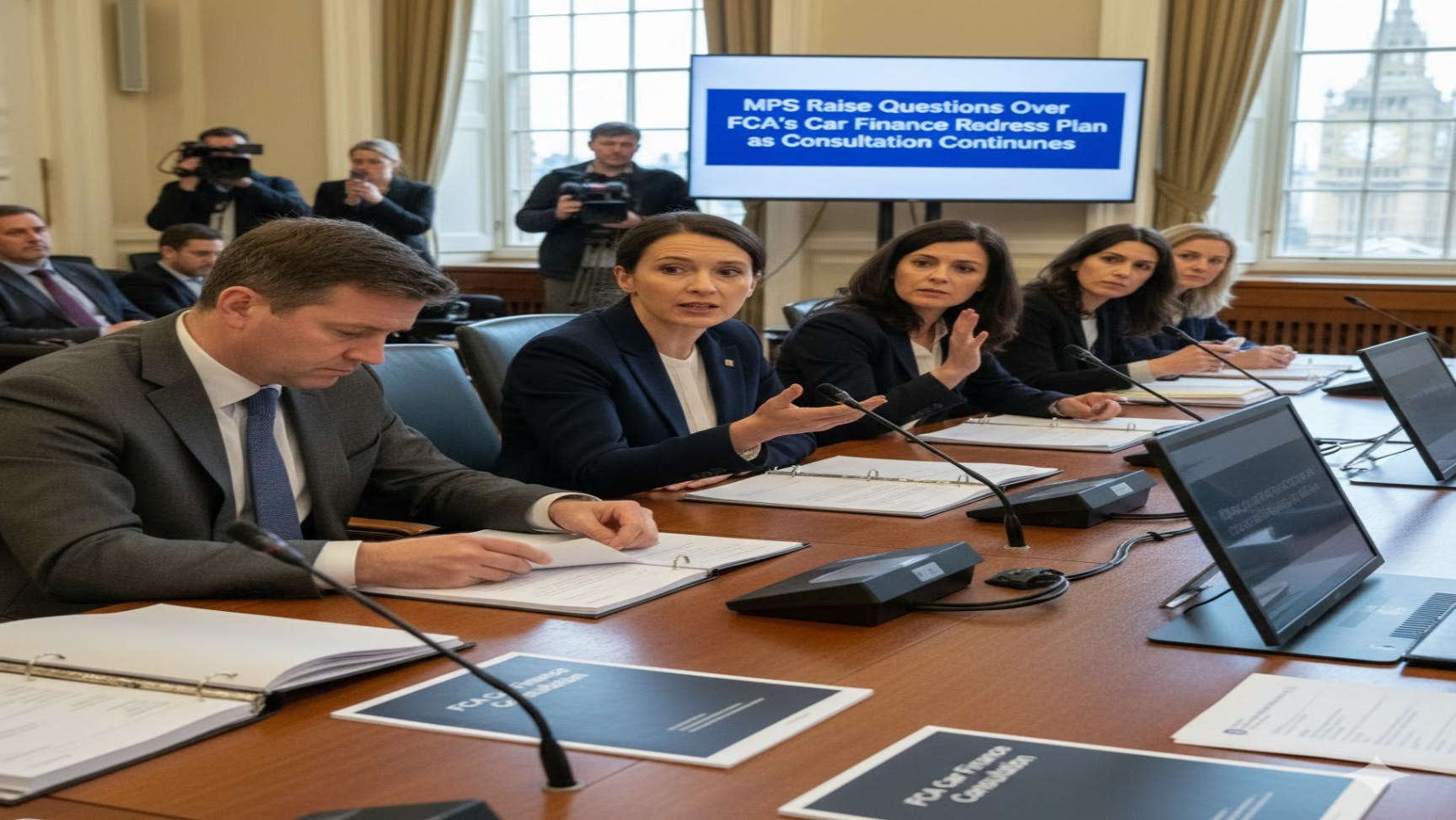MPs Raise Questions Over FCA’s Car Finance Redress Plan as Consultation Continues
News 4 November 2025 | Chris Roy |

The Financial Conduct Authority (FCA) has come under fresh pressure from Members of the Parliament (MPs) to explain how compensation for car finance customers will be calculated under its proposed redress scheme.
The watchdog has also stressed that its programme is designed to bring fairness and consistency to the industry and to provide redress to the numerous historic car finance mis-selling claims. After years of looking into commission-based lending models, the move could see millions of UK drivers reclaim money they have lost due to inflated finance charges.
Background: Why the Redress Scheme Matters
The draft proposal sets out a standardised framework for resolving car finance claims arising from discretionary and fixed commission agreements, where brokers previously had flexibility to adjust customer interest rates in exchange for higher commissions from lenders.
The FCA banned these practices in 2021 [1]. But for many consumers affected, borrowing became more expensive. With the redress scheme, affected drivers can make a claim for compensation. This is easier than each consumer having to file an individual complaint.
Analysts said that the FCA expects to pay compensation to millions of mis-sold car finance customers next year in one of the biggest refund schemes in financial history. Full guidance will follow when the responses to the consultation on the plans are analysed.
MPs’ Views on Consumer Outcomes
MPs have emphasised the importance of a redress model which is based on financial loss and provides a fair and appropriate remedy to consumers who have been affected. A few have asked whether the benchmark rate, proposed at 2.09%, adequately accounts for the extent of overpaid interest under previous finance agreements [2].
Response from FCA and Continuing Consultation
The FCA has reiterated that it has and continues to build its framework through an open consultation process [3] that includes stakeholder groups from the financial and consumer sectors.
“Our objective is to ensure that consumers receive fair and consistent outcomes,” the regulator said in a recent statement. “The proposed approach balances redress for affected customers with stability across the lending market.”
Due to end in late November 2025, it is one of the most ambitious consultations ever undertaken in the UK’s financial services sector. Keep up to date with progress and timelines for implementation on the latest information on UK car finance claims.
Industry Observations and Consumer Guidance
Some finance claims experts have said that they see the FCA's plan as a positive step towards addressing historic mis-selling. But the effectiveness of the final framework will hinge on the detail, with clear definitions needed on how redress will be calculated and when it will be paid.
Motorists who may have been affected are encouraged to review their finance contracts and determine whether PCP claims apply to their case. Many drivers continue to ask how long does a PCP claim take or how long do car finance claims take to pay out, as refund schedules are expected to vary once the FCA finalises its decision.
What It Means for Motorists
If approved, the redress framework will outline how consumers can have their finance agreements reviewed and, where applicable, receive a car finance refund. Those whose contracts involved commission-linked interest adjustments are advised to collect relevant documentation ahead of the scheme’s rollout.
Motorists can also seek guidance from claims specialists to understand their eligibility. Many turn to the best car finance claim company for help navigating the process, though participation remains voluntary at this stage.
Looking Ahead
The FCA’s move is a welcome development in tackling one of the UK’s biggest consumer scandal: the car finance scandal. The development of a single process for compensation would assist the regulator in its efforts to restore confidence and ensure a level playing field across motor finance.
Motorists waiting for information on when is the PCP payout will be able to track the development here. For free eligibility checks and advice on how to prepare their claim, see here for updated guidance from Reclaim247. Drivers have also asked how long does Reclaim247 take, with the answer being it varies from case to case.
Although there are variances of opinion around the approach and timescales, the majority of the interested parties all agree that the FCA’s model is essential to giving the structure to the administration of the resolution of the car finance mis-selling claims. So far, the current consultation period has focused on retaining a process that is fair and open, with each motorist receiving the outcome they are entitled to.
_________
References:
- The FCA banned these practices in 2021 - https://www.fca.org.uk/publication/consultation/cp24-15.pdf
- A few have asked whether the benchmark rate, proposed at 2.09%, adequately accounts for the extent of overpaid interest under previous finance agreements - https://www.theguardian.com/business/2025/nov/03/car-finance-redress-scheme-shows-city-watchdog-nakedly-siding-with-lenders-mps-say
- FCA’s open consultation process - https://www.fca.org.uk/news/statements/fca-consults-motor-finance-compensation-scheme
